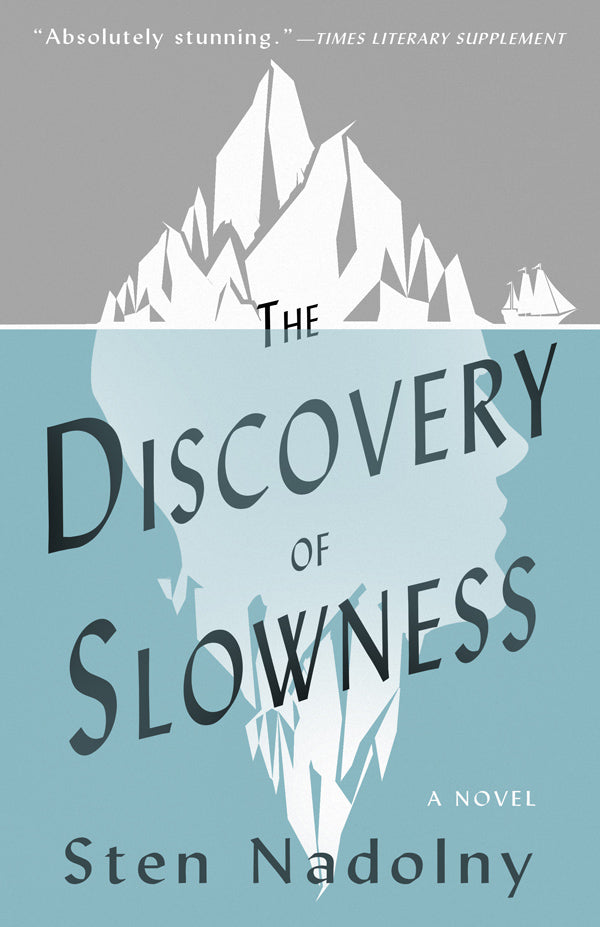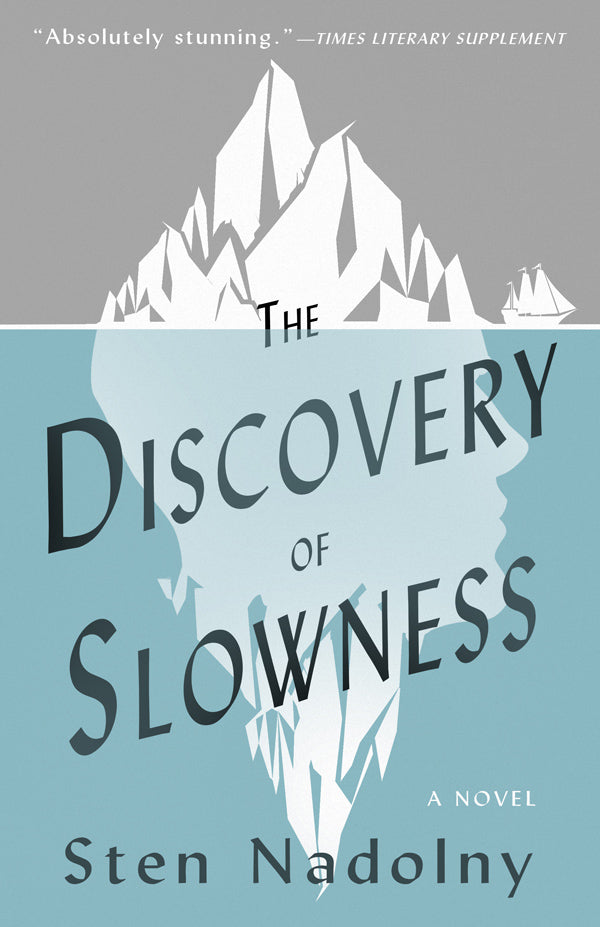The Discovery of Slowness
The Discovery of Slowness
Sten Nadolny
Couldn't load pickup availability
Foreword by Carl Honoré / Translated from the German by Ralph Freedman / 325-page paperback / 5.38" x 8.5" / ISBN 978-1-58988-024-5 / Publication Date: May 2005
"Absolutely stunning."—Times Literary Supplement
"This book made my life more interesting."—Christoph Niemann (as described in the Netflix series Abstract: The Art of Design)
The Discovery of Slowness—a huge commercial and critical success across Europe, where it is considered the popular author's masterpiece—recounts the life of the nineteenth-century British explorer Sir John Franklin (1786-1847).
Through the author's acute reading of history and his marvelous storytelling prowess, the reader follows John Franklin's development from awkward schoolboy and ridiculed teenager to expedition leader, governor of Tasmania, and icon of adventure. Slow and deliberate from boyhood, Franklin appeared destined to be a misfit. But he escaped from the ever-expanding world of industry and Empire to the sea's silent landscape, where the universe seemed more manageable. At age fourteen he joined the navy. After surviving the harrowing battles of Copenhagen and Trafalgar, he embarked on several voyages of discovery into the Canadian North, and served as governor of Van Diemen's Land (now Tasmania). Everyone with whom he came into contact sensed that Franklin was a rare man, one who was "out of his time" and who moved to a different, grander beat. That beat eventually led Franklin to sail once more—on his final, fateful voyage—into the Arctic in search of the Northwest Passage.
The Discovery of Slowness is a riveting account of a remarkable and varied life. And it is also a profound and thought-provoking meditation on time. The result is an unforgettable and deeply moving reading experience that justifies the novel's reputation as one of the classics of contemporary world literature.
"Vivid and constantly surprising…excels at conveying the feel of discovery…Nadolny evinces remarkable empathy with his unlikely Odysseus and Ralph Freedman's translation captures the crystalline freshness of the author's imagery."—Washington Post Book World
"This remarkable, superbly translated novel derives from the life of the real 19th century explorer John Franklin…[whose] adventures are conveyed with spellbinding skill."—Publishers Weekly
"The Discovery of Slowness is a masterpiece of characterization, a portrait of inwardness in the most outward-thrusting of lives."—The New Republic
"Fluid and suspenseful, a thought-provoking reminder of contemporary society's tendency to speed through everyday life."—The Providence Journal-Bulletin
"Amazing…His book is a historical painting, a seafarer's novel, a love story, an outcast's story all in one. This variety appears very harmonious, just as it incidentally, almost secretly, reflects on our right to discover the world at our own, personal pace."—Frankfurter Allegemeine Zeitung
"Sir John Franklin is the embodied contrast to the frenetic agitation of the modern world. The discovery of slowness is the slowness of discovery."—New York Review of Books
"Nadolny's vision is conveyed with restraint and charm…He has written a Utopia of character."—New York Times Book Review
"Its appeal lies in its observation of the texture of life, seen by a character who has to work everything out from first principles. It needs to be read slowly, to be absorbed as much as understood."—Scotland On Sunday
"This is more than an adventure; it's a meditation on time and perception…Not to be rushed, or forgotten."—The Herald (Scotland)
"Nadolny brilliantly sets the narrative pace to the rhythms of the frozen landscape, and to the 'slowness which is bred by hunger.'"—Robert MacFarlane
"This is both a wonderful historical novel and a spell-binding individual portrait…This is a marvellous translation of a masterly work."—The Observer
"Time, action and vision—a magical hat-trick and one that this translation pays faithful tribute to, capturing grand adventures like a detailed painting."—The Scotsman
"Slow movements of emotion and plot pull the reader expertly in, and the book with its self-consciously ponderous charm, offers all the pleasures of the best historical fiction." —Daily Telegraph
"A suspenseful and meaningful novel…The historical background and detail are effortlessly created, but most important, the hero's enthusiasm and persistence become infectious…The novel is a plea for humanity and against alienation."—Kurier
"Reading this book has a unique effect: it changes one's perception of the world, sharpens one's ear for rhythm and tempo, and sensitizes one for each person's unique inner time. At first glance, it is an historical novel; at closer glance it reveals itself as a plea to respect unalterable human rhythms in a time of rampant development."—Die Weltwoche
"A rarity…a strikingly friendly, entertaining novel."—Die Zeit
"In this novel about a heroic anti-hero, the concepts of victory and defeat become unsuitable categories: the name of the game is to insist, gently and stubbornly, on one's own themes, the motifs of one's own life…A novel both of power and of cunning, sometimes roguish, gaiety."—Süddeutsche Zeitung
"Nadolny is a writer who has studied history and has worked in film. All his interests are reflected in this novel: The Discovery of Slowness is an historical biography, based on original sources, and at the same time is concerned with seeing, with the fixed as well as the quick and fleeting look, with the perception of movement and its speed…He knows how to rise above time with slow-motion and time-lapse takes, in close-ups or long shots, with changing perspectives…In Nadolny's hands, Franklin 's slowness becomes an entire system: a tolerance for the unique speed of each person, of respect for all men. The discovery of slowness becomes also a discovery of literature."—Neue Zürcher Zeitung
Sten Nadolny (b. 1942) was an historian and filmmaker, before writing four novels and two collections of essays. He lives in Berlin and has been awarded four prizes: Ingeborg Bachmann (1981), Hans-Fallada (1985), Premio Vallombrosa (1986), Ernst Hoferichter (1995). The Discovery of Slowness (1983) has been translated into all major languages.
Carl Honoré has worked as a journalist in Europe and South America. He is also the author of the international bestseller In Praise of Slowness: How A Worldwide Movement Is Challenging The Cult of Speed. He lives in London with his wife and two children.
Ralph Freedman, born in Hamburg, emigrated to the US in 1939. His many publications include criticism, and two major biographies on Hesse and Rilke, as well as fiction. Having taught literature at Princeton for twenty-two years, he is now writing novels in his retirement.


